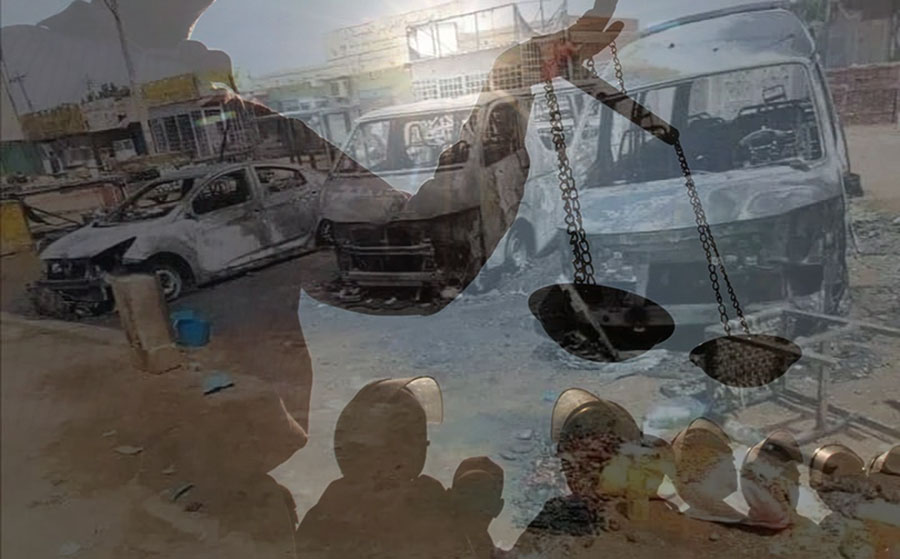
Criminal justice in the context of transitional justice
In contexts where mass atrocities and widespread human rights violations are committed, criminal justice cannot be achieved by adopting the same meagre comparison and resources as ordinary justice mechanisms. Seeking criminal accountability in similar situations often requires strategic prosecutions, special investigative methodologies and a wide range of specific processes, as well as a combination of approaches, both penal and correctional. Ultimately, these initiatives must respond to the interests of justice and victims rights, help rebuild the fabric of social and institutional society and advance sustainable peace.
The investigation and prosecution of international crimes -- including genocide, crimes against humanity and war crimes -- is an essential component of transitional justice. This component is based on the International Criminal Tribunals for the former Yugoslavia and Rwanda.
Investigating and prosecuting influential leaders (both political and military) would contribute to strengthening the rule of law and send a strong message that similar crimes would never be allowed in a rights-respecting society.
Trials remain the victims primary requirement. Once conducted in a manner that reflects victims needs and expectations, it can play a vital role in restoring their dignity, achieving justice and restoring confidence in State institutions.
But prosecutions alone cannot do justice. The nature of large-scale crimes often negates the possibility of being addressed through the ordinary criminal justice system -- a "gap of impunity". Effective crime prosecution strategies are often more focused on the perpetrators and organizers of crimes than on lesser or more responsible perpetrators.
The application of prosecution strategies along with other initiatives -- such as reparation programmes, institutional reform and truth-seeking -- could contribute to closing the "impunity gap", by prosecuting crimes involving a large number of victims and perpetrators.
Domestic prosecutions
Prosecution of international crimes may have a greater impact if conducted domestically, within the society in which the crimes were committed. However, societies emerging from conflict or in transition may lack the political will to prosecute such crimes, and their legal systems may be in disarray.
Even sophisticated legal systems - which primarily deal with ordinary crimes - may lack the capacity to effectively deal with such crimes, despite progress in international efforts to cooperate in documenting, investigating and prosecuting crimes classified as international under the principles of universal jurisdiction, perhaps most notably efforts to prosecute Augusto Pinochet and respond to mass atrocities committed in Syria. The application of the principles of universal jurisdiction -- which permit the exercise of jurisdiction over the accused, regardless of the place of the alleged crime or the accuseds nationality or residence -- would have led, for example, to the conviction of the exiled President of Chad, Hissène Habré, for acts of violence.
International prosecutions
These problems may sometimes impose other types of international approaches derived from best practices adopted elsewhere - on the establishment of the above-mentioned international criminal tribunals or "mixed" tribunals involving international and domestic actors in the field of justice. These courts have been established in Sierra Leone, Bosnia, East Timor and Cambodia.
International Criminal Court
In 2002, the Rome Statute established the International Criminal Court. It is a court that considers mass genocides, war crimes and crimes against humanity committed since 1 July 2002, investigating and prosecuting those responsible -- where States are unwilling or unable to do so.
Under the Rome Statute principle of "complementarity", domestic courts have a duty to do justice. Accordingly, the International Criminal Court is only a last resort. Recent years have seen an increase in domestic courts performance of this duty.
Impunity must be combated and the rule of law upheld both within domestic jurisdictions and at the international level. This work is often initiated by supporting civil societys efforts to document ongoing war crimes and crimes against humanity. Subsequently, when societies conduct and then move to peace negotiations and implement complex accounting mechanisms against the Special Court for Peace in Colombia, the work is completed.

